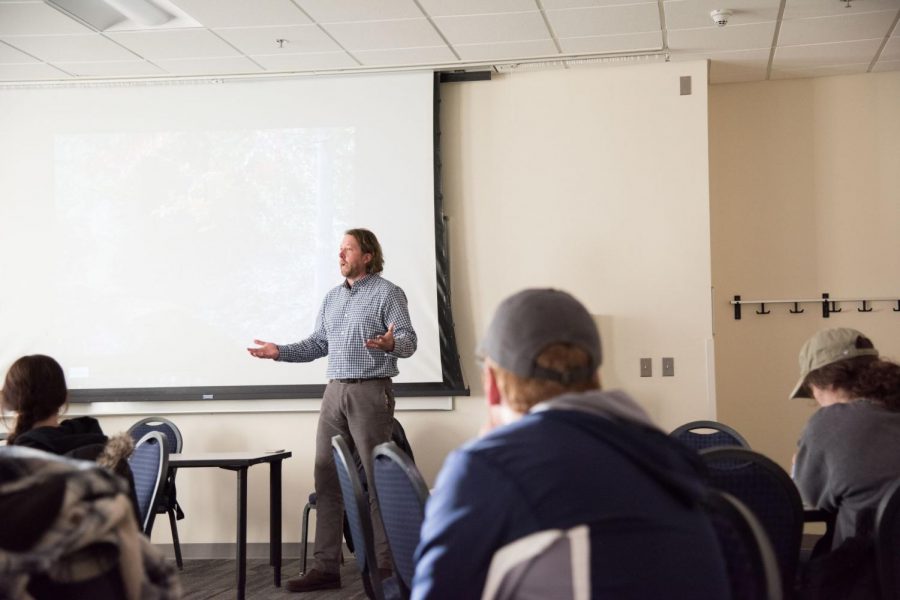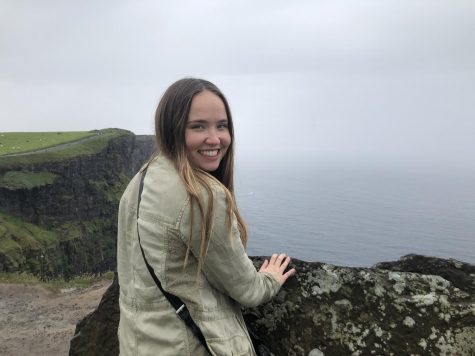Event focuses on water restoration in Ottawa County, GV campus
Feb 24, 2020
Grand Valley State University’s Alternative Breaks program is taking Lakers across the county this upcoming spring break. While the organization provides students with the opportunity to travel, it is ultimately focused on creating active citizenship through community-based learning projects.
This year, students have the option to travel to Murphy, North Carolina for a trip focused on water restoration. To provide information before the trip on water restoration and issues happening around Ottawa County, GVSU student Kayla Quinn, who is leading the trip, hosted an event in partnership with the Making Waves Initiative (MWI).
The event took place Tuesday, Feb. 18 in the Kirkhof Center room 2266. Included in the event was Water Resources Commissioner of Ottawa County Joe Bush, Planning and Performance Improvement Director Paul Sachs and Geology Professor and MWI Co-Leader Peter Wampler.
“One of the things we really focus on at alternative breaks is educating, so I thought bringing speakers in with these resources would be beneficial for education before the trip,” Quinn said. “I wanted to do this event sort of to collaborate with these other organizations. So I think definitely there will be a big partnership, and I’m hoping some of our participants will go on to volunteer for more local organizations like Making Waves.”
Bush was elected in 2012 and now is the overseer of up to 1,000 county drains. When elected, his title was Drain Commissioner, but Bush had the name changed to Water Resources Commissioner due to the vast roles the position fills.
“When I started Jan. 1, I said, ‘You know, this position of being a drain commissioner is a lot more than just maintaining waterways and drains,’” Bush said. “This is about water resources. Water resources to me is protecting natural resources, protecting the environment, protecting our water quality and the water that goes through our waterways. I feel like it’s my responsibility to make sure it’s clean.”
Bush and Sachs said that Ottawa County is the fastest-growing county in Michigan. While this ultimately means the county is booming, it also means that more houses, more roofs and more roads are being built. This means more runoff and less wetlands. Bush said a lot of the wetlands in Ottawa County have been overtaken by development.
“When you have development, you kind of take land that was or will be or maybe should have been a wetland,” Bush said. “Wetlands are very, very critical to the whole process of clean water, clean drains, the habitat and everything else. If you ruin your wetlands, it’s hard to clean the water out before it goes into our waterways.”
Another problem with this development is the increase in runoff. Bush said that the state of Michigan is like a sponge and that Ottawa County is estimated to be 80-90 percent full of water. Thus, any melt or rain becomes almost entirely runoff which fills lakes, creeks and drains at an increased speed.
All three speakers touched on the importance of awareness when it comes to water restoration. Bush said that simple tasks such as washing cars in the grass rather than in the street can have a positive impact.
To learn more about water restoration efforts at GVSU, visit gvsu.edu/makingwaves.



























